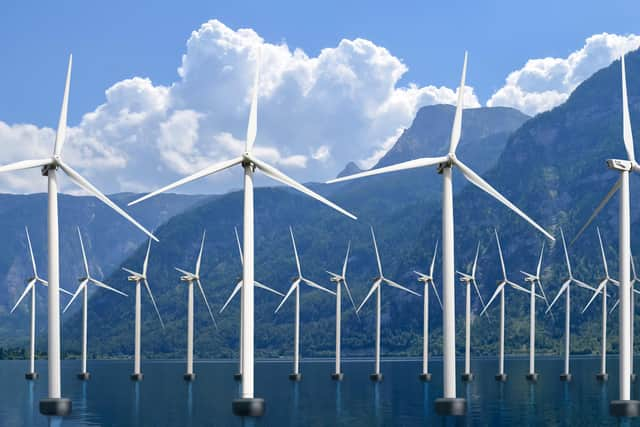We need to bridge the renewables skills gap - Andrew Esson
The UK Government aims to deploy 5GW of floating offshore wind capacity by 2030, describing the target as a ‘stepping stone’ to further growth, helping to develop jobs and opportunities in the wider supply chain, and place the UK at the forefront of the sector. In many ways, the Offshore Renewable Energy (ORE) Catapult is already helping the UK harness the potential of this technology, and this support will be further enhanced by our Floating Wind Innovation Centre (FLOWIC) in Aberdeen – the first test and demonstration facility of its kind in the UK – opening on 18 March.
Floating offshore wind offers a huge opportunity to develop a clean energy foundation for the UK and support the broader efforts to achieve net zero by 2050. It will enable the UK energy sector to develop the people, skills and vocations required.
Advertisement
Hide AdAdvertisement
Hide AdThe sector also provides a valuable pathway for people to transition from other sectors such as oil and gas. However, the scale and rate of expansion needed presents challenges in accessing the right people who have the skills to develop, deliver and operate projects.


Recent industry estimates suggest that more than 32,000 additional jobs need to be created by 2040 to sustain the growing demand for floating offshore wind. The floating offshore wind sector must take responsibility for creating and developing its own skills pipeline to maximise its potential.
There are various hurdles to overcome, including the need to increase apprenticeship opportunities. Latest statistics show that 2.6 per cent of employees in the sector are in apprenticeships – versus the sector’s 2.5 per cent target. While the target is being met, there is room for far greater ambition.
Systemic change is needed. We need to engage with school-age children at the earliest possibility and work closely with universities to ensure that graduate talent pursues more technical roles.
The Floating Offshore Wind People, Skills and Vocations project report concludes that the sector needs a major uplift in people with manufacturing skills and vocations, attributed to the demand for onshore fabrication of floating foundations and mooring assembly. For context, fixed offshore wind’s average manufacturing workforce is around 45 per cent of the total workforce, while floating offshore wind’s average is around 70 per cent.


Establishing workforce training centres close to floating offshore wind port facilities is one way to build a channel of talent and engage with local communities that require investment.
One such programme well under way is the Energy Central Campus in Blyth. Funded by the UK Government’s Towns Fund, North of Tyne Combined Authority and Northumberland County Council, the campus shows how ambition and collaboration can address the manufacturing skills gap head on. Comprising two education, training and skills facilities, this forward-thinking approach to closing the skills gap should be replicated everywhere.
So, while it’s clear that Government support for floating offshore wind is there, let’s come together as an industry to identify and share best practice across the UK – and find the skills to act now.
Andrew Esson, Future Skills Lead at the Offshore Renewable Energy (ORE) Catapult
Comments
Want to join the conversation? Please or to comment on this article.